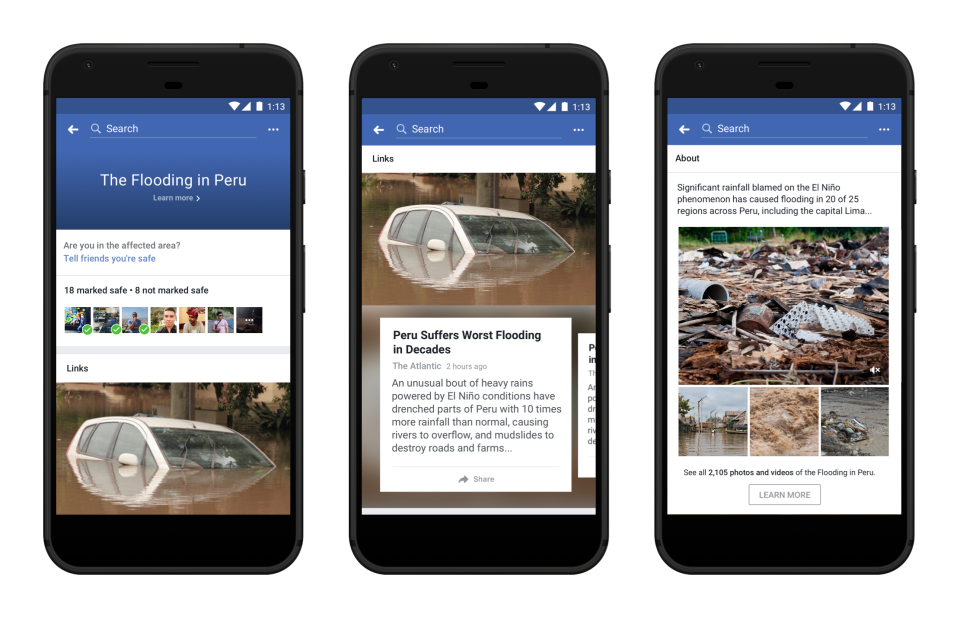Facebook Launching Crisis Center To Put Safety Check, Fundraising In One Place Image courtesy of Facebook
Facebook knows that when a natural disaster or other major crisis hits, many people turn to social media to connect with loved ones, ask for or offer help in their communities, and raise money for charitable causes. The company is now putting all of those tools in one place.
All together now
Following an earlier update that expanded Safety Check to allow users to offer and get help in a crisis, Facebook is now moving Community Help and Safety Check to its new Crisis Response feature.
In that area, users will also be able to create fundraisers and donate to support those affected by the crisis, as well as nonprofit organizations helping with relief efforts.
And in an effort to provide more information about crises, Facebook will show folks links, articles, photos, and videos of crisis-related content from public posts.
Making money on Facebook
Perhaps to prepare for the likelihood that some bad actors may try to take advantage of this new feature to make money off such crises, Facebook also introduced monetiziation eligibility standards this week.
“These standards provide clearer guidance around the types of publishers and creators that are eligible to earn money on Facebook, along with guidelines on the kind of content that can be monetized,” the company says.
With these new standards, content must meet certain guidelines. If users don’t comply with the standards, Facebook will notify them that it has removed the ads. Users can challenge the eligibility of their content through the appeals channel.
For example, tragedy and conflict content — focusing on real world tragedies, like natural disasters, crime, or medical conditions — may be ineligible, Facebook says, “even if the intention is to promote awareness or education.”
Other kinds of content that may get vetoed for monetization include misappropriation of children’s characters, debated social issues, violent content, adult content, prohibited activity (sale or use of illegal products, for example), explicit content, drug or alcohol use, and inappropriate language.
Want more consumer news? Visit our parent organization, Consumer Reports, for the latest on scams, recalls, and other consumer issues.


